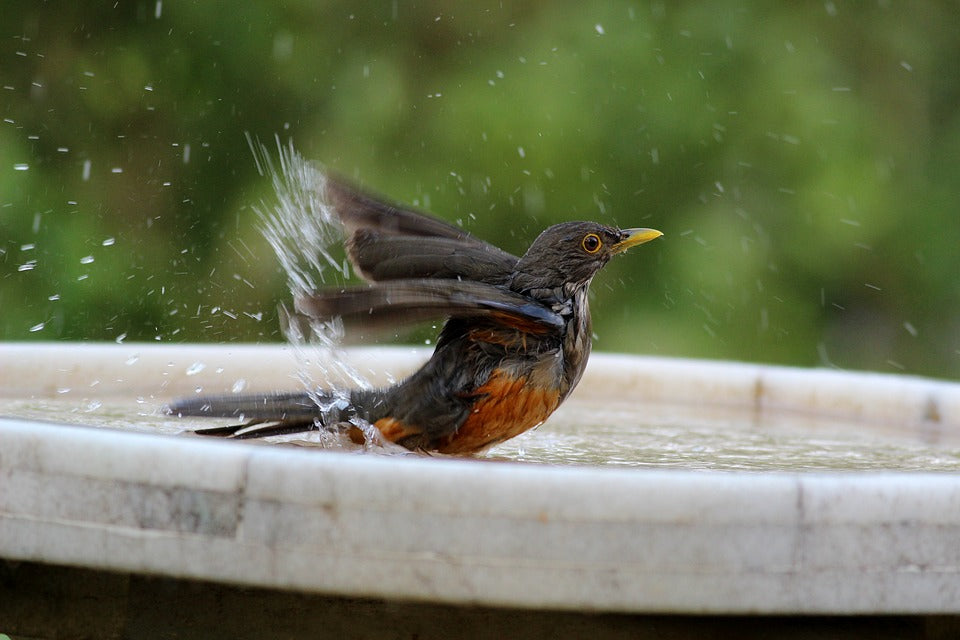Offer
Provide additional details about the offer you're running.
Provide additional details about the offer you're running.
Provide additional details about the offer you're running.

The summer months are something we all very much look forward to. Longer days, warmer weather and the ability to get by the lake, in the woods or simply perched near your favorite backyard bird feeder are what the summer is all about.
When it comes to our backyard birds, one thing cannot be overlooked throughout the entire year, and that is our bird baths. Whether we are tuning them up during the spring, keeping them clean of clutter during the fall, or keeping them full in the winter, each season presents new challenges for our baths.
With that in mind, we have compiled a short list of threats your birdbaths could potentially pose to your feathered friends and the best ways to avoid them.
Bath Size
It’s no secret. Birds need water this time of year and lots of it. While at times, it can be relatively easy for most of us to routinely keep our bird baths full. But let’s not forget, this time of year is full of vacations, BBQ’s and other summer commitments that can be the direct cause of a dry bird bath.
To remedy this problem, many will opt for a larger sized bath in an attempt to get more mileage out of each fill-up. While this can certainly be true, be mindful that bird can, in fact, drown in water that is too deep for them. Many folks will place decorative rocks in larger bird baths to give the bird the footing they need, in the event the birdbath is just too deep.
Positioning
There are two main threats that can directly correspond to the placement of your bird bath. The first is evaporation. Hot summer temperatures and dry conditions can eliminate water in a heartbeat.
The second is predators. A bird bath just might be the perfect ambush point for feral cats and other predators looking to pounce on an unsuspecting bird.
Pick a shady spot in your yard to place your bath, and be mindful to leave enough cover that will allow both concealment and successful escape for your birds when threatened, but open enough that willing predators cannot easily hide in close proximity to the water.
Cleanliness
Maintenance is the key to successful bird bath operation, but how you perform your maintenance can make all the difference. Clean water that is regularly changed prevents mold, feces, and bacteria from contaminating your water supply and potentially spreading disease among the flock.
When it comes to cleaning your bird bath, pay close attention to the cleaning product used. Harmful chemicals should never be used to clean your bird bath as even the smallest concentration of chemicals, herbicides or insecticides can act as poison to your backyard birds.
High Quality Blend